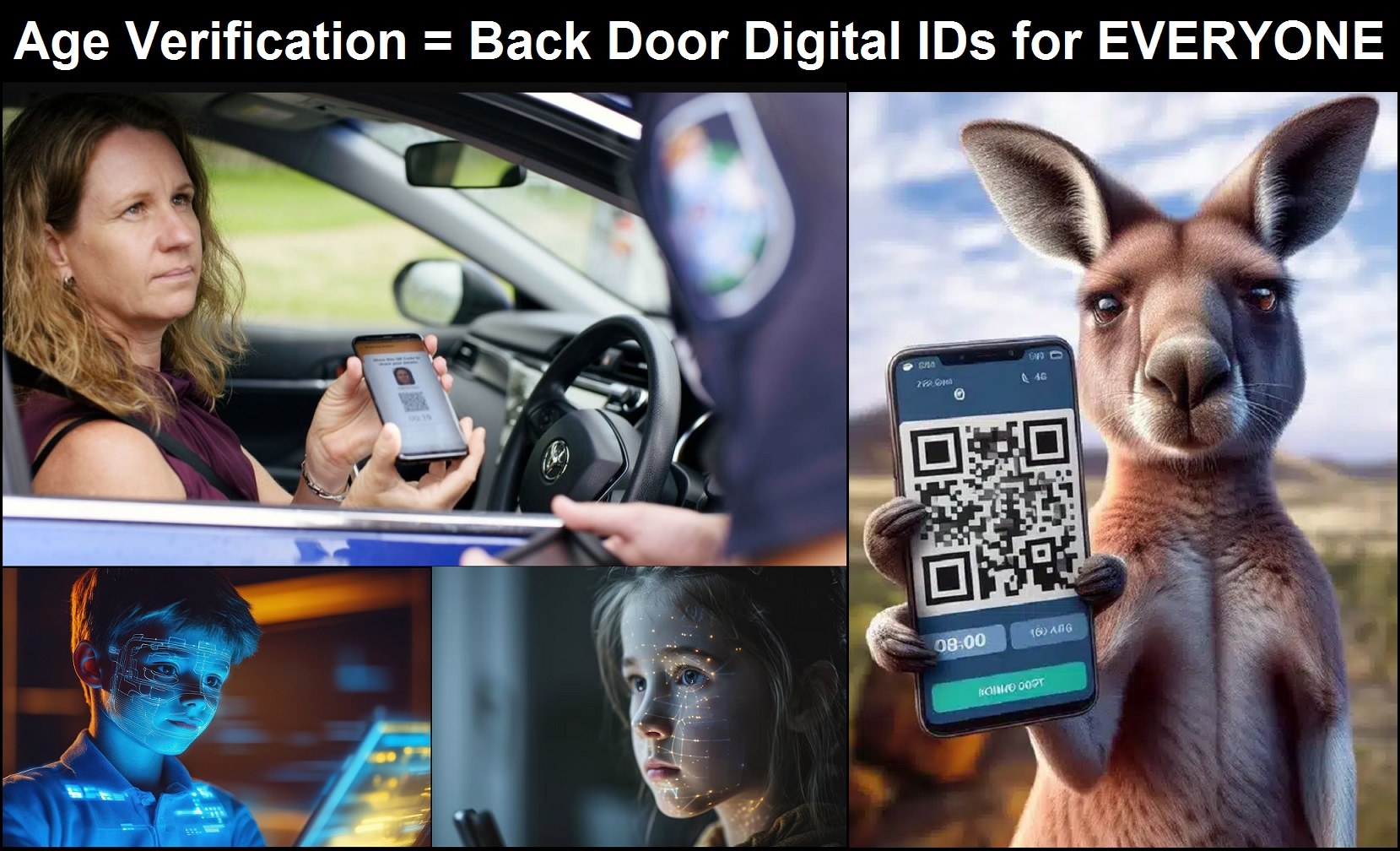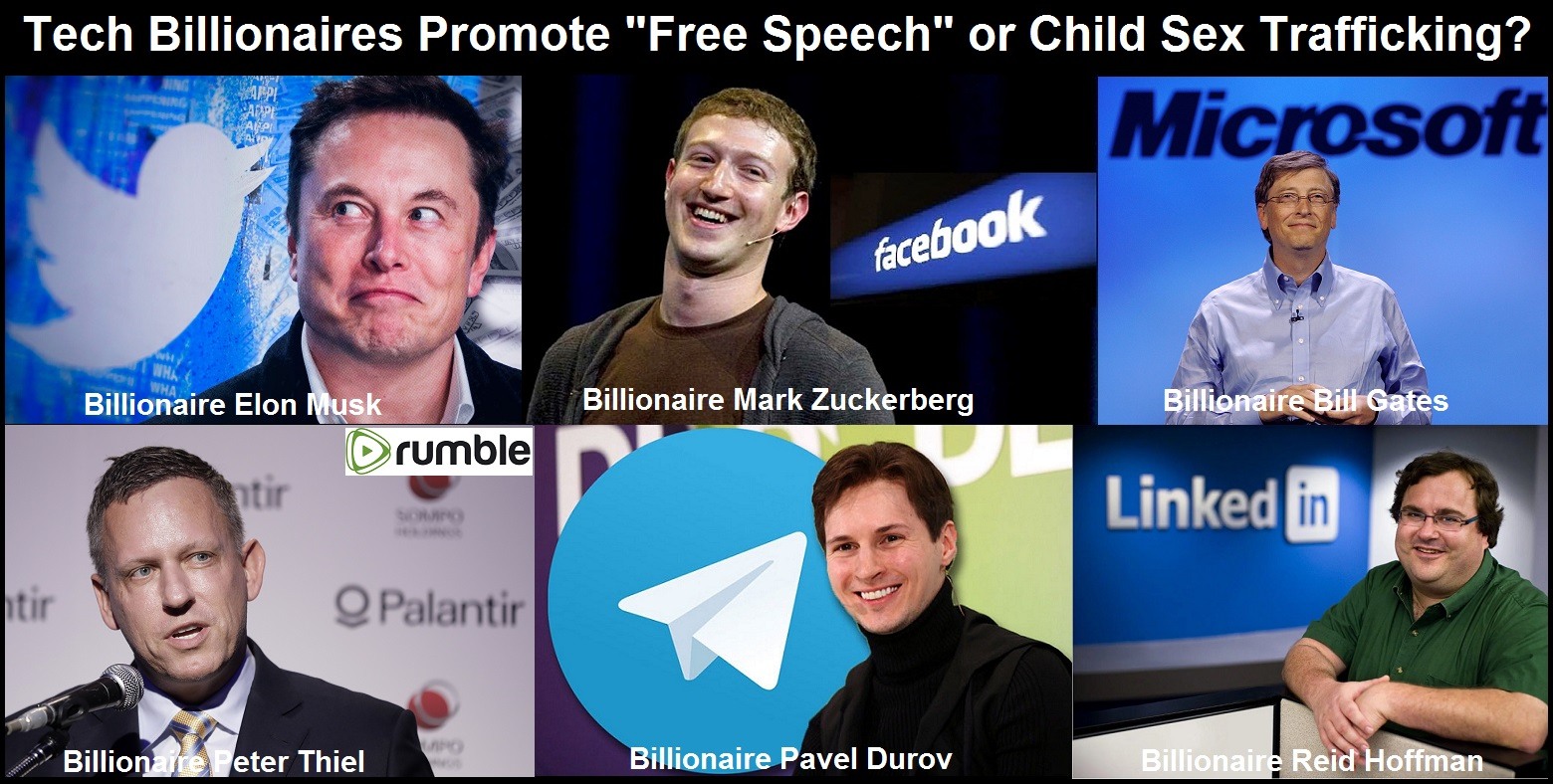
From the perspective of the consumer who uses social media, however, it became obvious that “age verification” requirements to access online services effectively mean that EVERYONE then will eventually have to prove their age, NOT just children.
Last week, Australia became the first nation in the world to pass strict legislation prohibiting children under the age of 16 from using online social media.
The reaction from Big Tech was mostly negative, as the issue at hand that this legislation concerns is “age verification” software in order to comply with laws such as this.
While Australia is a small country when it comes to online social media users, most saw this as a “test case” and an issue that will soon spread to other countries as well.
What Australia’s Social Media Kids Ban Means for Tech
While U.S. tech executives were tucking into their turkey on Thursday or guzzling Koia shakes, Australian lawmakers were approving a law that bans children under 16 from having a social media account.
Whoa! Australia is a relatively small country whose revenue contribution to Meta Platforms, Snap or TikTok is likely minuscule. But investors have to consider the possibility that the land Down Under is the canary in the coal mine of social media regulation.
After all, the Australian law is a more aggressive variation on laws passed by many U.S. states over the past couple of years, all aimed at protecting children from the worst of social media.
The U.S. state laws vary widely: some states, such as Tennessee, require social media firms to verify that parents consent to their children having an account. Age verification, to ensure social media firms know when a child holds an account, is becoming more common.
It’s hard to say whether these efforts have had much of an impact. Then again, tech industry lobby groups have sued to block implementation of many of these laws.
Tech companies are also trying to dodge responsibility for verifying who’s a kid and who’s an adult. Meta argues that the responsibility should sit with the mobile app store providers, Apple and Google. Apple says the opposite, as this Wall Street Journal report detailed.
But last week, The Washington Post reported that two Republican congresspeople were preparing a federal bill making the app stores responsible.
Social media firms aren’t ignoring the broader issue. Meta, for instance, recently made Instagram accounts for teens private by default, which should make it a bit harder for creepy adults to stalk kids. But given the pressure—including from mothers, as The Information recently reported—such efforts aren’t likely to be enough for social media’s critics.
To be sure, how exactly Australia plans to enforce the law is very unclear, particularly as it says social media companies can’t require state IDs as an age verification tool. If politicians are as worried about kids’ safety online as they claim to be, they wouldn’t make it difficult for social media firms to verify ages.
Tech companies have to prepare for the possibility that Australian-style bans could spread to other countries.
That would be particularly damaging for Snap, whose Snapchat app skews younger than those of other social media firms. But it wouldn’t be good for TikTok, Meta or even Reddit either.
If nothing else, the Australian law adds to a growing assembly of international regulations that threaten to mire tech firms in an ever expanding bureaucratic bog. While engineers are tech’s most valuable source of talent today, one day soon lawyers may take precedence. (Source.)
From the perspective of the consumer who uses social media, however, it became obvious that “age verification” requirements to access online services effectively mean that EVERYONE then will eventually have to prove their age, NOT just children.
A few Australian lawmakers clearly saw this, and warned the public that this was a back door way of rolling out government-issued national IDs to everyone in Australia.
Here is a brief video (under 5 minutes) of their concerns and warnings.
Their voices were largely unheard and probably suppressed, as I saw nothing about this in the U.S. media until after the bill passed.
My Australian friend, Dr John Gideon Hartnett of Bible Science Forum, covered the implications of this bill in a recent article, stating that he had no intentions of complying with a requirement of a National ID in Australia, and encouraged others to not comply either.
Australia’s Controversial Social Media Age Verification Bill Now Law
The Australian government’s Social Media Age Verification Bill has been passed without debate, aiming to impose biometric digital ID on citizens aged 16 and over. Critics warn it represents a shift towards authoritarianism and encourage voters to oppose Labor and Liberal parties.
The Australian Labor government, with support from the Liberal Opposition, therefore the Uniparty, just passed into law the Social Media Age Verification Bill without any real debate.
No other country in the world has such draconian laws.
But I think it is a good thing, not because of the police state surveillance, but because it might wake up a sleeping mass against the imposition of the authoritarian state.
It is really about forcing us all onto the biometric digital ID blockchain.
Craig Kelly wrote on X
The Social Media Age Verification Bill is not about “protection the children” it‘s about forcing every Australian 16 and over to obtain biometric facial recognition digital ID.
And VPNs won’t save you, because the new law empowers ACMA to force global surveillance of social media to hunt down Australians using VPN’s – and force them to comply by obtaining biometric digital ID.
But Australians have one last chance to stop this at the next election, by voting for the Libertarians or One Nation.
For it you rock up to vote Labor or Liberal as you have always done – you are voting for the implementation of totalitarian state.
It is time to wake up Australians!
This is the progression towards the state described by George Orwell in his famous novel 1984.
He just got the year wrong by 40 years.
As far as I can tell BibleScienceForum should be unaffected by this denial of freedom of speech to Australian under-16-year-olds.
The issue of biometric facial-recognition and digital ID won’t affect me either because I WILL NOT COMPLY! Nor should you comply!
That might mean that I will not be able to post anything on social media (X.com, Telegram.com and Facebook.com etc) because I will not be applying for a digital ID. But if they force me off all forms of social media, so be it. (Full article.)
Age Verification IDs Online will NOT Protect Children, but Make them MORE Available to the Pedophiles!
 As I have previously reported, these huge social media companies run by billionaires could care less about “free speech” and they are ALL involved in child sex trafficking.
As I have previously reported, these huge social media companies run by billionaires could care less about “free speech” and they are ALL involved in child sex trafficking.
Please read this article, especially the last part, that I recently published that shows the problem with child sex trafficking that ALL of these huge social media companies are involved in, and the many links I provided in that article: Do Big Tech Billionaires Promote “Free Speech” or Child Sex Trafficking? What is “Free Speech”?
With this new law in Australia, which is most certainly a test case to be rolled out to the U.S. and many other countries soon, young girls and young boys aged 16 and over can be listed in a hackable database along with an image of their face and other personal details.
Even if the software companies swear up and down that this information will remain private, you can be sure that it will not, as cyber security software and other security measures to prevent this still lag way behind in their abilities to keep this data private, as we see in the news most every day reading about how these hackers so easily obtain this data.
If you want to keep your children safe from online predators, your only solution is to keep them offline completely, or only allow them online in your own home with you or another trusted adult present with them during their entire online activities, and completely avoiding ALL social media sites, or any other sites that require your child to create an account.
This also means that if they leave your home without you present with them, not supplying them with a “smart” cell phone.
There are still flip phones available for concerned parents who want to keep in touch with their children when they are not present, that cannot connect to Internet sites. (One review of such cell phones here.)
I agree with Dr. Hartnett that everyone should RESIST and NOT comply with obtaining Government-issued digital IDs.
If enough people refuse to comply, they will not be able to accomplish their goals, because compliance is necessary for this to work.
And even if the majority of people do comply, there is no guarantee this will work either, because the technology will always be dependent upon people owning devices to access the Internet, an Internet that is stable and ALWAYS available, electricity to run it all, and many other things that are necessary, but are by no means certain, in the future.